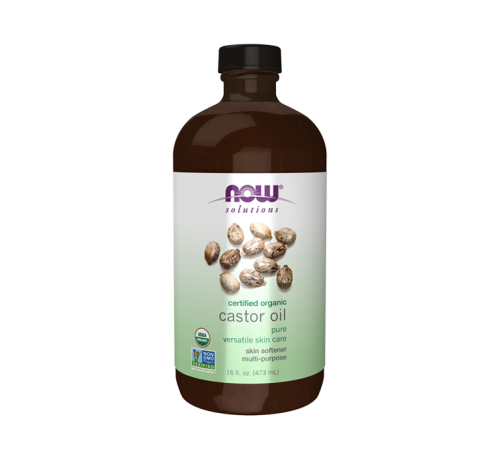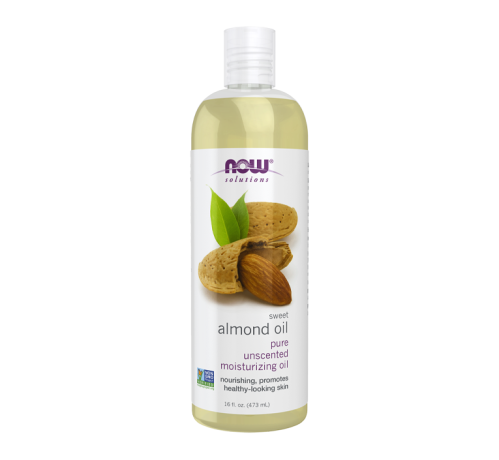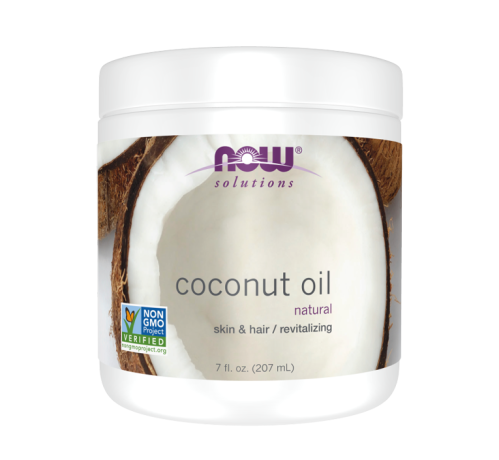Everyone has a beauty goal. Maybe you’re looking to keep your skin feeling soft and hydrated, reduce the appearance of fine lines, or give your hair a little extra shine. Maybe you’re just aiming for five minutes of self-care every day. Maybe you’re feeling pretty good and want to maintain the status quo.
Wherever you find yourself, you’ve probably noticed that there are about a million products that claim to be the solution—which makes it easy to end up with an overflowing cabinet and a routine that feels more overwhelming than effective.
Instead of layering on more, the secret to achieving your beauty goals might actually be in paring down. Enter: plant-based carrier oils. These multi-tasking wonders can hydrate, nourish, and protect your skin and hair—all without a complicated, 14-step regimen. According to board-certified dermatologist Adarsh Vijay Mudgil, MD, the right plant-based oils can be powerhouse additions to any beauty routine, helping to support healthy-looking skin and hair while keeping things refreshingly simple.
“Plant oils have many potential benefits for skin,” Dr. Mudgil says. “First, they are generally sustainable and biodegradable, which is an advantage over many synthetic alternatives. For skincare, many plant-based oils are moisturizing and rejuvenating.”
And while oils can sometimes get a bad rap for being greasy or pore-clogging, Dr. Mudgil explains that’s largely a misconception. Many plant-based oils are non-comedogenic and packed with antioxidants and fatty acids that help nourish both your skin and hair.
In the spirit of simplifying things, NOW® Solutions has all kinds of high-quality, cruelty-free, and comprehensively tested oils that naturally cater to a variety of goals, no major investment included (and you can get 20 percent off through April 30). From skin hydration to scalp health, you can up the effectiveness and efficiency of your beauty routine with one simple (and budget-friendly) swap. So check out Dr. Mudgil’s recommendations, and find the plant-based oil for your beauty goal.
For boosted scalp health: castor oil
Think of castor oil as your scalp’s version of a deep-tissue massage: rich, nourishing, and exactly what it needs to feel rejuvenated. While it’s long been hyped as a hair-growth miracle, Dr. Mudgil says the real magic lies in its ability to help moisturize the scalp and reduce dryness, creating the ideal environment for healthy hair to thrive. A little goes a long way, so massage a few drops into your roots for that extra dose of self-care.
To help reduce the appearance of fine lines: apricot kernel oil
Looking for that just-left-a-facial glow—on the daily? “Apricot kernel oil is a terrific emollient, which can reduce the appearance of fine lines,” Dr. Mudgil says. It’s also packed with antioxidants, helping to protect the skin from environmental pollutants that can prematurely age the skin. Plus, it’s lightweight and fast-absorbing, which means you don’t have to worry about waiting around for the oil to sink in (um, who has time?). Dab a little onto clean skin before moisturizing and let this little golden drop do its thing.
For skin hydration: sweet almond oil
If your skin could text you, it would probably send a “TYSM” after a swipe of sweet almond oil. Full of skin-friendly vitamins and fatty acids, Dr. Mudgil recommends this ultra-nourishing oil to help lock in moisture and leave skin feeling soft and supple. Whether you’re fresh out of the shower or looking for some mid-day hydration, consider this your skin’s daily dose of TLC.
For nourished hair: coconut oil
Sun, salt, styling—your hair goes through a lot. Think of coconut oil as an unplug-and-unwind getaway in a bottle, delivering deep moisture to your thirsty strands. Packed with natural fatty acids, it helps hair feel soft and smooth (that’s why you’ll often find it in leave-in conditioners and overnight masks). Dr. Mudgil’s pro tip? Be sure to keep it on the mid-lengths and ends, because it can clog your pores when it’s applied directly to the scalp. Smooth a little onto your ends before bed and wake up with hair that looks like it actually drank its eight glasses of water.
To protect against harsh weather: shea nut oil
Cold, dry air? Wind that feels personally offensive? Shea nut oil is here to wrap your skin up in a cozy barrier of hydration. “Shea nut oil is very hydrating and can therefore protect our skin against extreme cold, wind, and excessive dryness,” Dr. Mudgil says. If you’re facing unpleasant forecasts these days, keep a bottle in your winter survival kit for an extra layer of skin-loving comfort.
For double cleansing: vegetable glycerin
If you love a good oil-based cleanser but hate the post-wash residue, vegetable glycerin is your skin’s new best friend. Made to be the second step in a double-cleanse routine, it helps remove lingering impurities while leaving skin feeling hydrated, Dr. Mudgil says. Think of it as the final rinse cycle for your face, prepping you for the rest of your pared-down, carrier-oil-based beauty routine.
Want to score NOW® Solutions carrier oils at a discount? They're on sale for 20 percent off through April 30!
Get all the latest in wellness, trends, food, fitness, beauty, and more delivered right to your inbox.
Got it, you've been added to our email list.

















